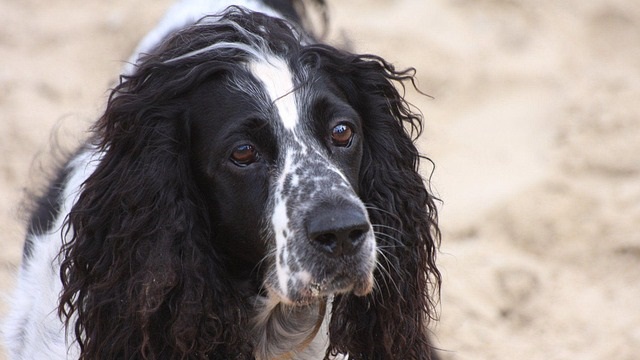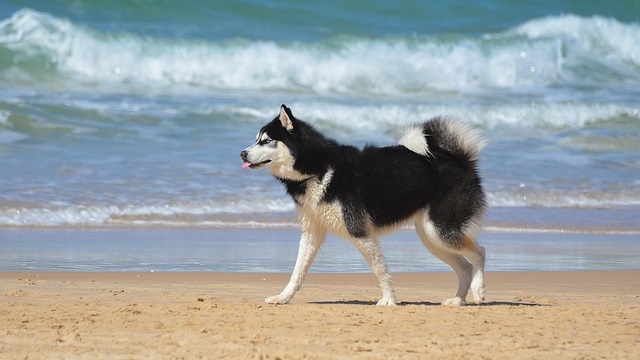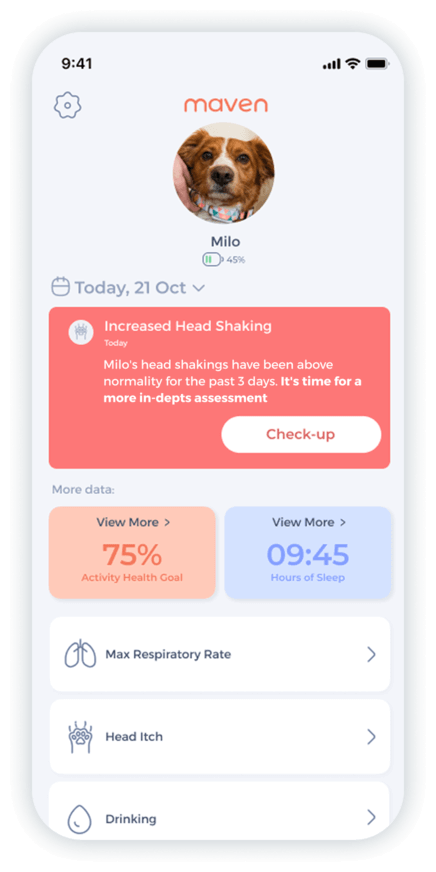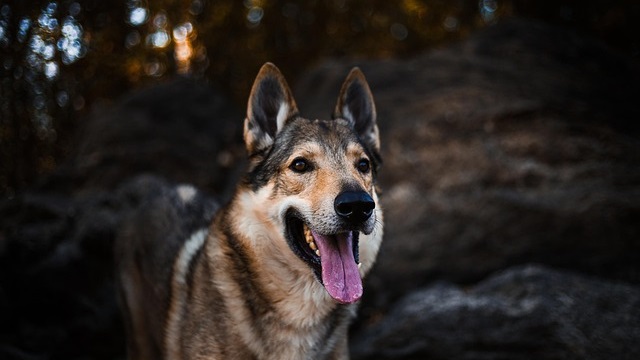Why Is My Dog Losing Weight? Causes and When to Worry (Vet Verified)
If you have noticed your dog has shed a few pounds, you have probably found yourself Googling why is my dog losing weight in a bit of a panic. The truth is that weight loss in dogs can result from a range of causes, something as benign as them becoming more picky eaters, or those far more serious, like diabetes and cancer. Let’s unpack what might be going on and when it’s time to worry.
Key takeaways:
- Dogs lose weight when they burn more calories than they eat
- A dog that eats but still loses weight may not absorb nutrients properly
- Older dogs can lose muscle with age, but sudden weight loss is a concern
- Medical causes for sudden weight loss include diabetes, thyroid disease, kidney or liver issues, parasites, cancer, and EPI
- Rapid weight loss with vomiting, lethargy, or breathing issues needs an urgent visit to the vet
Why Is My Dog Losing Weight?
Dogs lose weight when they’re burning more calories than they take in. That might sound obvious, but the tricky part is figuring out why it’s happening, especially if you’ve been feeding them regularly and they’ve been eating their usual portions. Sometimes, they may be losing weight because they are not eating enough, while in other cases, an underlying condition is at play.
Here are the most common culprits:
- Not eating enough food: portion sizes that are too small or food that isn’t calorie-dense enough.
- Poor appetite: stress, pickiness, or illness can reduce how much your dog eats
- Parasites: internal parasites steal nutrients before your dog can absorb them
- Dental problems: pain from teeth or gums makes chewing food uncomfortable.
- Chronic disease: issues like diabetes, kidney disease, or thyroid disorders can cause weight loss.
- High activity levels: very active dogs may burn more calories than they consume.
“I got the Maven sensor for my 14-year-old Chihuahua mix with heart and trachea issues. It gave me back peace of mind – I can track her RRR, BPM, drinking, and activity anytime and know instantly if something’s wrong. Highly recommend!”

★★★★★
Chiara De Luca
Titti
Why Is My Dog Losing Weight but Still Eating?
In most cases, it’s not about how much they’re eating, but how their body is using (or not using) those calories. Parasites, for example, can steal the nutrients before your dog can benefit from them. Conditions like diabetes or thyroid disease can make their metabolism run in overdrive, burning fuel faster than usual.
Additionally, tummy troubles like inflammatory bowel disease can cause food to move through the digestive system without being fully absorbed. So, even if the bowl is empty, your pup’s body might not be retaining what it needs.
Why Is My Senior Dog Losing Weight but Still Eating?

Before resorting to the good old doctor Google with a query like “why is my senior dog losing weight but still eating?” know that it’s normal for older dogs to lose a little muscle mass and “shrink” in a way, much like people do with age. So, a bit of weight loss can simply be part of the aging process. That said, it’s important not to brush it off too quickly.
Senior dogs are more prone to health issues like kidney disease, diabetes, or even cancer, all of which can cause weight loss even when appetite stays the same. Suppose you notice your older pup looking thinner, especially if it is a sudden loss accompanied by other changes (like increased water consumption, slowing down, or acting off). In that case, it’s best to visit a vet to be safe.
Why My Dog Is Losing Weight: Common Medical Causes
When it’s not about the diet or activity levels in your dog, it’s time to turn the focus to medical causes. Here are the most common ones:
- Diabetes – Diabetes mellitus prevents the body from properly using sugar for energy, resulting in calories being lost through urine. Dogs often seem hungry all the time, yet they continue to slim down.
- Thyroid problems – An overactive thyroid, as seen in cases of hyperthyroidism, speeds up metabolism, burning through calories faster than normal, leading to sudden weight loss.
- Kidney disease – When the kidneys are malfunctioning, they can’t process the body’s waste, which can affect appetite and lead to weight loss in dogs.
- Liver disease – When the liver isn’t working properly, it disrupts how the body processes food and stores energy.
- Internal Parasites – Worms and other intestinal parasites literally steal nutrients from dogs, so no matter how much they eat, they are always hungry, and therefore, constantly lose weight.
- Cancer – Some cancers increase the body’s energy demands or interfere with how nutrients are absorbed, causing gradual, unexplained weight loss.
- Exocrine Pancreatic Insufficiency (EPI) – EPI stops the pancreas from making enough digestive enzymes, so food isn’t broken down and absorbed properly. Dogs with EPI often have a big appetite but still lose weight, sometimes accompanied by greasy or loose stools.
Emergency Signs to Watch For

The emergency signs you need to watch out for and react by taking your dog to the vet immediately after noticing them are:
- Sudden weight loss that’s not from dieting
- Refusing food or water
- Vomiting or diarrhea that won’t stop
- Blood in stool or vomit
- Lethargy, weakness, or collapse
- The dog has difficulty breathing or is coughing constantly
- Drinking and peeing excessively
- Visible pain, bloating, or a distended belly
If your dog shows any of these symptoms alongside weight loss, it’s best to treat it as an emergency. A quick vet visit can make all the difference in catching something serious early.
How Vets Diagnose Weight Loss in Dogs
When you bring your dog to the vet, they usually do a physical exam. Also, they will ask about your dog’s eating habits, how active they’ve been active, and other changes.
From then on, doctors will usually perform blood work, urine tests, or an ultrasound or X-ray to determine if the issue is not with internal organs. Vets could also use an ally in the form of a pet health tracker. By logging your dog’s weight, activity, eating patterns, or even subtle changes in breathing and sleep, you’ll have solid data to share with your vet and help them get to the root of the problem faster.
“Any unexplained weight loss in dogs is a concern. Even if your dog is eating normally, weight loss can signal an underlying illness that needs veterinary attention.” – Carolina Domingues, DVM at Maven Pet
How the Maven Pet Health Monitor Helps Track Health Changes
Maven Pet’s dog health tracker makes it easier to catch the early warning signs because it tracks your dog’s daily activity, rest, behaviors, and even respiratory rate.


Monitor heart rate, respiratory rate, activity & rest, drinking, itch behavior.
Maven also compares your pup’s current data to their personal baseline, so it can flag unusual patterns and alert you right away. That means you’re not left guessing whether weight loss is a normal part of aging or something more serious.
Conclusion
No one’s denying the possibility of a dog’s weight loss being just connected to them not liking the food, or because it’s just too hot in summer. However, a sudden, unscheduled, and unplanned weight loss in dogs can stem from serious health issues like diabetes and cancer. That’s why a pet health app that tracks the dog’s activities, heart rate, and other vital signs is all the help you need. Make sure to keep an eye out for all the changes and react promptly to ensure your dog’s well-being.
Maven Pet focuses on improving the quality of life of our pets with technology, using artificial intelligence (AI) to enable proactive pet care. By accurately collecting and monitoring pet data 24/7 and flagging any irregularities, Maven Pet empowers pet parents and veterinarians to stay ahead of potential health issues, ensuring the well-being and longevity of our beloved companions.




